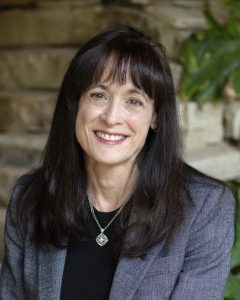August 5, 2020

Donna Hedges PhD, MBA, MSN, CNE, RN
Director, Nursing Services
ABSN Program – Orbis Education
Adjunct Professor, RN to BSN Program (Online)
Schreiner University
OADN Board Director – Southwest Region
(August 5, 2020) – We live in challenging times. Covid-19 has revealed the harsh realities of being on the frontlines of a global pandemic and the vulnerabilities of our healthcare system. As the number of cases escalates in parts of the United States, we continue to witness the perseverance, courage, and dedication of nurses and all members of the healthcare team and most sadly, the physical and psychological suffering of so many people. The pandemic has also caused unprecedented challenges to nursing education. As Dr. Pam Jeffries so accurately stated, “The silver lining of this pandemic is that it’s made us move forward to do something different” (2020). With little preparation and a tremendous amount of work to accomplish in a short period of time, nursing faculty transitioned didactic and clinical courses to the online environment. Faculty and students were asked to “think outside the box” and resoundingly, they have.
As we enter the fall semester, academic leaders, faculty, and students are facing uncertainty as the Covid-19 pandemic continues to evolve. The Centers for Disease Control and Prevention guidelines and college policies and procedures will dominate how educational content is delivered. In many cases, students will continue to learn in the online environment whether or not they intended to pursue this mode of delivery. In addition, the lack of available clinical placements within hospitals will necessitate the use of simulation and virtual simulation to augment clinical hours. If students are permitted to practice skills within on campus labs, social distancing, adequate PPE, and disinfecting procedures will be paramount. While these measures are critical to the safety of faculty and students, the need for fewer numbers of students and increased numbers of lab sections will be necessary. Academic leaders will be faced with the dilemma of how to meet state board requirements for graduation, students will be anxious about their readiness for NCLEX and for transition into practice, and healthcare systems will be faced with the need to strengthen preceptorships and internships designed to facilitate new graduates’ transition into practice. There is no shortage of complexity as we collectively seek to answer these issues in the best interests of our students.
Reflecting on the lessons we have learned, and the challenges that we still face, one thing is certain: nursing faculty and students must be flexible and resilient. The world of nursing education has dramatically changed. Yet there’s another silver lining in all of this: we also have changed. Having been pushed “outside the box”, faculty have demonstrated creativity and perseverance driven by their dedication to educating our future nurses. Nursing students have pressed on despite the paradigm shift in their educational journey and have advocated for continuing to be at the bedside to provide care and to assist the nursing staff. Deans and Directors have strategized through uncharted waters to meet this tidal wave of change and have entered into multi-level discussions to address educational requirements. Despite this intense work, the road ahead is still a bit unclear. In all of this, however, OADN unquestionably believes that ADN academic leaders, faculty, and students have what it takes to blaze the path forward.
As I hear nurses share their experiences and read the social media posts of students I have taught in clinical settings, I have decided that nurses are not superheroes. Nurses are extraordinary human beings who are profoundly dedicated to providing care to people in the worst of times. Nurses are exhausted, they are grieving, and they are afraid – yet they remain at the bedside providing the only light their patients will see in the darkness that is Covid-19. The symbolic lamp we carry is the light within ourselves and that light is passed from faculty to students. This is the essence of nursing and is precisely why we will continue to persevere through this pandemic and the next.
Jeffries, P. (2020). Nursing simulation: What have we learned from the pandemic. Hord Coplan Macht.